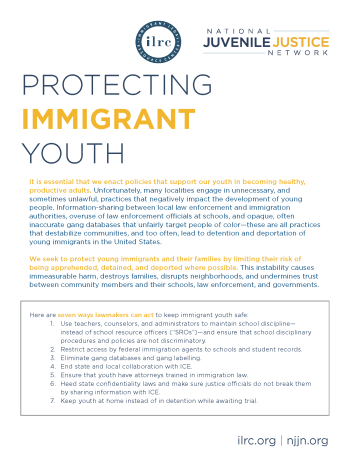A prospective client’s complete entry and exit history to the United States is one of the most important pieces of information to gather so that you can properly evaluate their immigration case. However, sometimes it can be challenging to figure out what questions to ask to elicit the information you need, or what the answers mean. This practice advisory describes different types of entries to the United States—entries without inspection, entries with valid documents, entries with fraudulent documents, “wave throughs”—as well as different outcomes of unsuccessful attempted entries—voluntary returns or expedited removals—and the legal significance of these different entries and attempted entries. We also provide suggestions for questions to ask clients to identify what happened at each entry or attempted entry. This discussion applies to entries and attempted entries made by people who are not lawful permanent residents; it is primarily meant to help you assess a client’s options for obtaining legal status, by understanding their entry and exit history to the United States.
On June 28, 2018, U.S. Citizenship and Immigration Services (USCIS) issued a memorandum stating the expanded circumstances in which the agency will begin issuing a Notice to Appear (NTA), including upon denying most affirmative applications. This practice advisory provides an overview of the new USCIS NTA Memo and gives tools for identifying possible red flags that could trigger enforcement actions by Immigration and Customs Enforcement (ICE). It also identifies some precautions that advocates should take when preparing affirmative applications in light of this new policy.

It is essential that we enact policies that support our youth in becoming healthy, productive adults. Unfortunately, many localities engage in unnecessary, and sometimes unlawful, practices that negatively impact the development of young people. This fact sheet, written together with the National Juvenile Justice Network, describes policy changes that could help protect immigrant youth.
Resources on the FIRST STEP Act—legislation to reform the criminal justice system—and its impacts on non-citizens.
These materials provide guidance for educators and other professionals working with immigrant parents to be able to conduct family preparedness workshops. Family preparedness workshops help families engage in contingency planning for their children, in the event of detention or deportation of a parent. The materials contained here include a script, a sample PowerPoint, and other helpful resources.
In December 2017, the Department of Homeland Security announced its intent to revoke Employment Authorization Documents (EAD) for H-4 visa holders. A Notice of Proposed Rulemaking is expected to be published in the coming months. We encourage people to oppose this senseless, cruel, and unnecessary rule. This rule will strip work authorization from over 100,000 women, forcing many to choose between work, family, and their home. This resource provides a description of the rule and its disproportionate effect on AAPI women, why you should oppose the rescission, and what you can do to stop this harmful proposal.
This resource, co-created by the ACLU and ILRC, discusses the Trump administration's denaturalization operation and describes the process of denaturalization, who the targets are and the number of cases as well as the historical context for these efforts.
This article is an updated guide to selected California offenses that discusses precedent decisions and other information showing that the offenses avoid at least some adverse immigration consequences.
This resource is a collection of one-page fact sheets on various forms of immigration relief meant to provide a brief overview of options that may exist for undocumented immigrant children. While geared towards children and youth, it may also be helpful as an introduction to some of the immigration options available to adults as well. This is not meant to be an exhaustive resource. We recommend consulting with an immigration expert before filing any applications for immigration relief.